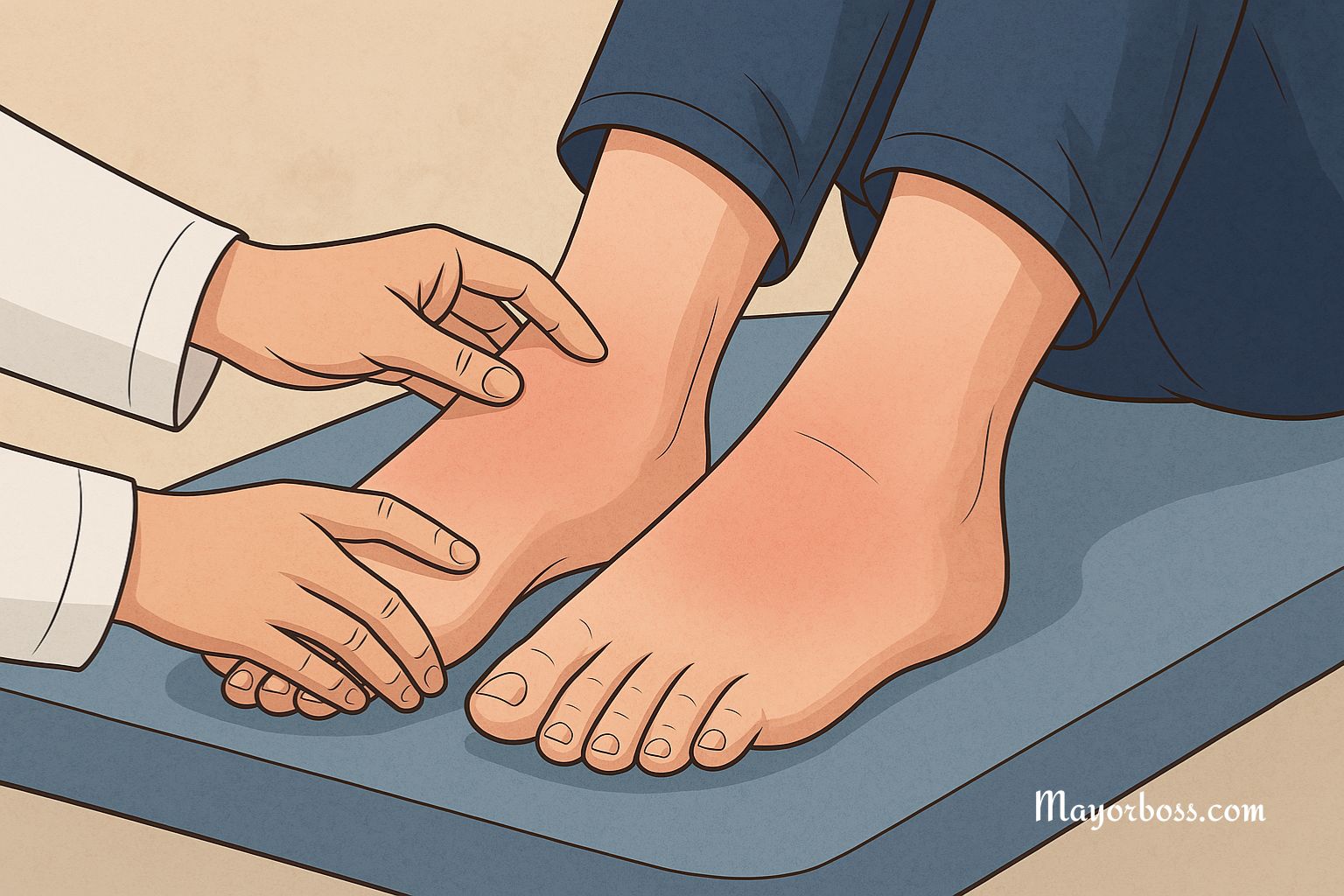If Your Feet Are Swollen, You May Have Poor Circulation, Blood Clots, Kidney Disease, or Heart Problems
Swollen feet can seem like a minor issue. Maybe you think it’s just from standing too long or wearing tight shoes. But persistent or frequent swelling in your feet could be a sign of an underlying medical problem. It’s your body’s way of telling you something isn’t right. In many cases, the cause involves your heart, kidneys, or blood circulation.
What Causes Swelling in the Feet? Swelling in the feet is called peripheral edema. It happens when fluid builds up in the tissues. This buildup can be due to something simple, like sitting or standing too long, but it may also point to serious health problems. Your body usually keeps fluid levels balanced, but when something disrupts that balance, swelling can occur.
Let’s look at some possible causes.

Poor Circulation
If your blood isn’t flowing well, fluid can start to pool in your lower legs and feet. This is especially common in older adults or people with conditions like chronic venous insufficiency. In this condition, the veins in your legs don’t return blood to your heart as they should.
The result? Blood and fluid collect in the lower part of your body, especially your feet and ankles. Over time, this can cause visible swelling. You may also notice your skin feels tight or shiny, and you might have leg discomfort.
Blood Clots
Another serious cause of swollen feet is a blood clot, particularly in the deep veins of the legs—a condition known as deep vein thrombosis (DVT). This type of clot blocks blood flow, leading to swelling in one leg or foot. You may also experience pain, warmth, and redness in the affected area.
DVT is a medical emergency. If the clot breaks free, it can travel to your lungs, causing a pulmonary embolism, which can be life-threatening. If one foot suddenly becomes swollen and painful, seek medical attention right away.
Kidney Disease
Your kidneys help remove extra fluid and waste from your body. If they are not working properly, fluid can build up in your tissues. This often causes swelling in the feet, ankles, or legs.
In the early stages of kidney disease, you might not notice any symptoms. But as the condition progresses, swelling becomes more noticeable. You may also feel tired, have changes in urination, or notice puffiness around your eyes.
Heart Problems
Your heart pumps blood through your body. If it isn’t pumping well, blood can back up in the veins. This leads to fluid retention, especially in the lower parts of the body. One common cause is congestive heart failure.
With heart failure, your feet may become swollen at the end of the day or after physical activity. You might also feel short of breath, unusually tired, or have a rapid heartbeat.
Swelling related to heart issues often affects both feet and gets worse when you lie down or try to sleep.
Other Possible Causes
There are several other conditions that can cause your feet to swell, including:
- Liver disease, which affects fluid regulation
- Lymphedema, where the lymph system doesn’t drain properly
- Infections, especially in people with diabetes or poor circulation
- Pregnancy, due to increased fluid and pressure on the veins
- Medications, such as those for blood pressure, diabetes, or pain
When to See a Doctor
Occasional mild swelling is usually not a concern. It can happen after sitting or standing for long periods or during hot weather. But if the swelling:
- Happens often
- Is painful
- Affects only one foot
- Comes with other symptoms like chest pain or shortness of breath
—then it’s time to see your doctor.
Swelling that doesn’t go away or keeps coming back needs evaluation. It could be a sign of a serious medical condition that requires treatment.
How Doctors Diagnose the Cause
Your doctor will ask about your symptoms and medical history. They may check your blood pressure, examine your legs, and order tests such as:
- Blood tests to check kidney, liver, and heart function
- Ultrasound to look for blood clots
- ECG or echocardiogram to check heart function
- Urine tests for kidney issues
What You Can Do
If your swelling is due to a medical issue, your doctor will recommend treatment based on the cause. In the meantime, you can try:
- Elevating your legs above heart level
- Wearing compression socks
- Reducing salt in your diet
- Staying physically active
- Drinking enough water
If you notice your feet swelling regularly, don’t wait. Make an appointment with your doctor to find out what’s causing it and get the care you need.
